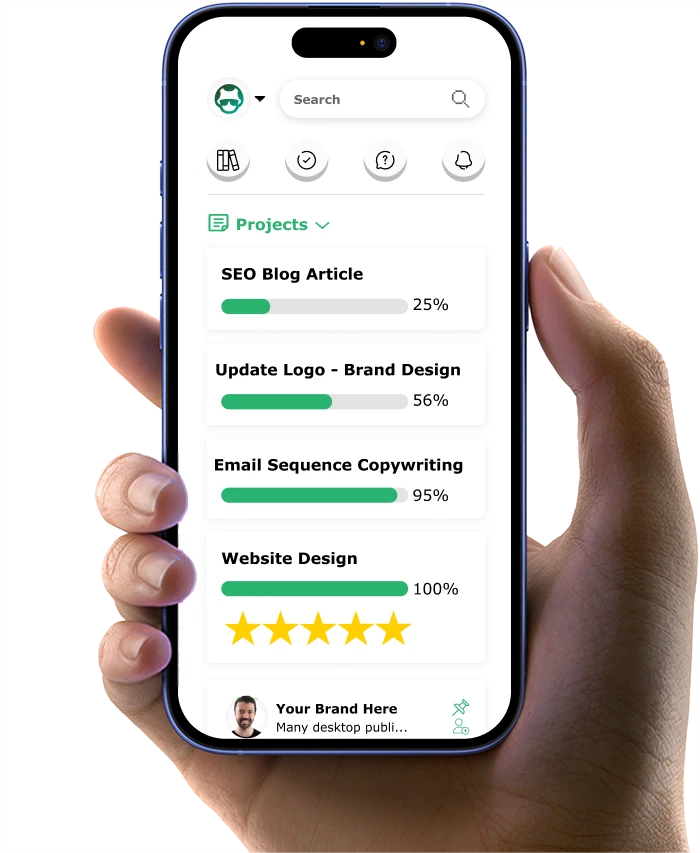This Is The Only Reason Your Revenue Has NOT Skyrocketed
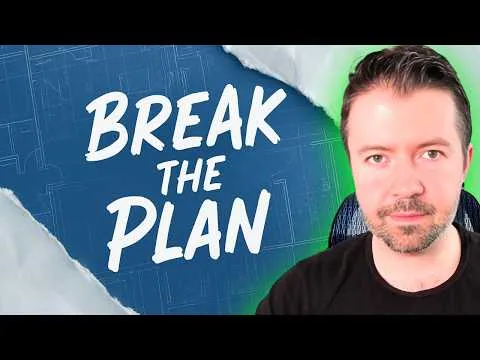
Most people think a great plan is all you need to win in business. But that's not true.
Studies show that 90% of startups fail not because of their ideas, but because they don't act on them.
When I started my first company, I spent weeks perfecting my business plan. But nothing happened until I took action—messy, imperfect action.
This article will show you how simple, steady effort can get you further than the smartest strategy on paper. You'll see why top founders win by doing, not just planning. You'll meet four entrepreneurs:
- The 'scattered' college friend who walked away with $10 million while I was still writing business plans (what he understood that I didn't)
- Sam Altman who failed with his first startup but used that "failure" to unlock the secret to a $157 billion AI empire (the mindset shift that changed everything)
- The Groupon founder who turned a $9 domain into billions—while my team had the same opportunity but never pulled the trigger
- Neil Patel who cracked the code to Fortune 1000 clients using one "boring" daily habit most entrepreneurs ignore
Ready to see why some companies “soar” to billions while others flounder and crash before the wheels leave the runway? Let’s get started.
Want to get all your marketing and funnel work done—without the headaches of hiring a team? Download our free guide: 33 Marketing Projects You Can Delegate to Growbo and discover how to save 100+ hours a month, grow faster, and scale without the overhead.
I've been an entrepreneur for 19 years, and many of my peers—who are no smarter or more talented than I am—have gone on, in several cases, to become billionaires or run eight- and nine-figure companies.
So I have to ask myself: What are they doing that I'm not? What do they know, or what have they accepted and applied, that I haven't?
After reflecting on this for years, I've come to a conclusion that I believe is the single most important reason for their success.
Why Most Business Goals Feel Impossible (And How to Change That)
Success in life is mostly an illusion, and it must first occur in the mind. Otherwise, you'll chase it forever, and it will forever elude you.
It doesn't matter how many material possessions you have, how much money or status you accrue—if you haven't defined and internalized what success means for you, you'll feel hollow even if you "make it."
The following image shows that most people quit too early—at the dip or the plateau—when in reality, sustained effort is what turns the illusion of success into tangible results.
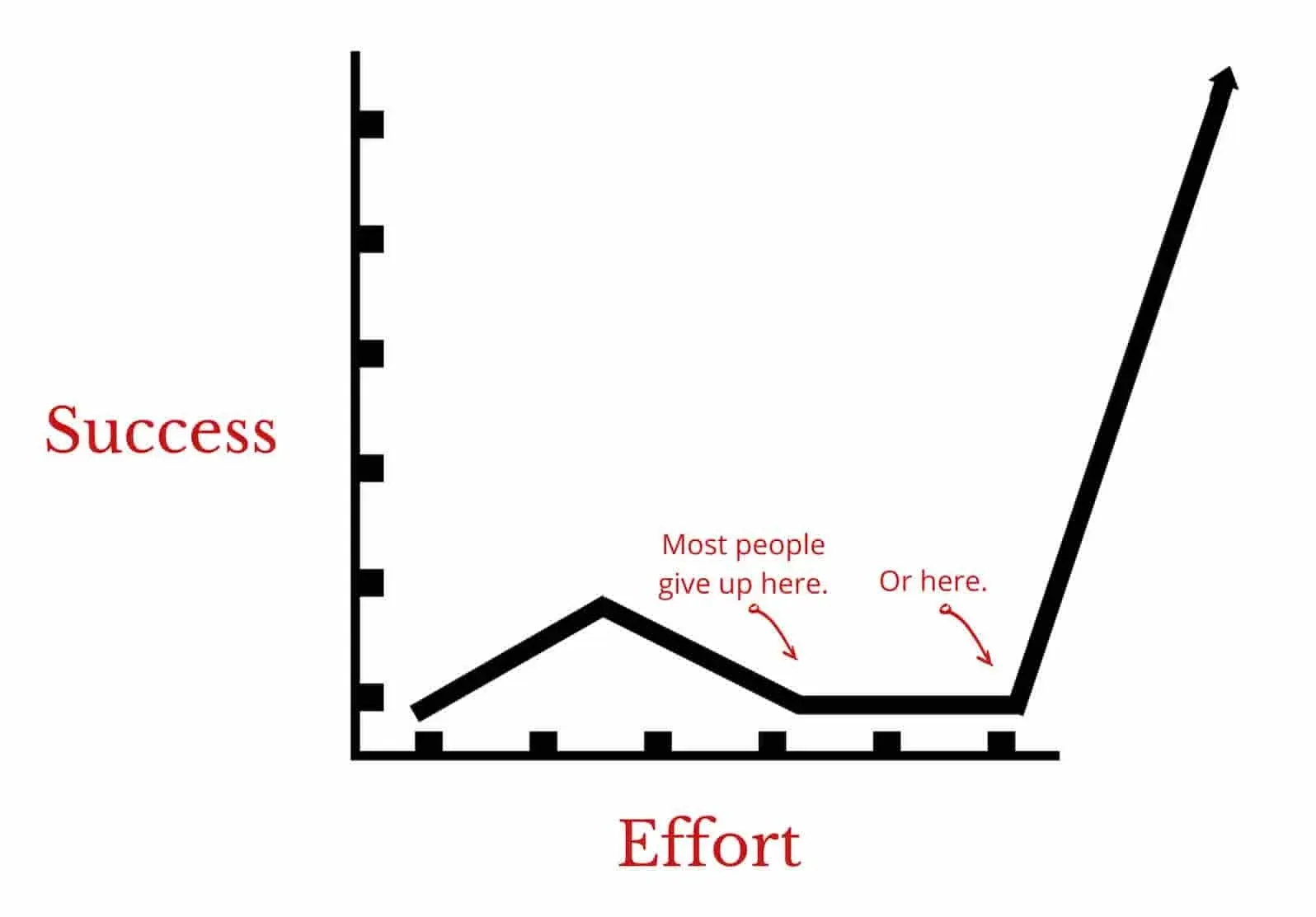
But in this article, we're talking about tactical success—going from no profit to some profit, or from $10 million to $50 million in revenue. These are tangible business goals.
Attach your self-esteem or identity to material success at your own peril. Here, we're focusing on tactical success: measurable, business-specific outcomes.
4 Real Examples: How These Entrepreneurs Built Million-Dollar Businesses
If my peers aren't more intelligent or talented, what are they doing that I'm not? What do they see or know and apply that I'm missing? Let me share some examples.
Example 1: My College Friend and the $10 Million Exit
Back in college, I had a close friend who, like me, had discovered entrepreneurship and became passionate about the startup journey. He was actually a little more scattered in terms of his time and attention at the time—I was actually a little more focused with my coupons for college students' startup.
But fast forward about six years after we graduated, and he had some stock that he had acquired as a college student where he was coding for another company. He acquired some equity in this company, and that company sold to Adobe for $170 million. The value of his stock was about $10 million, adjusted for inflation.
He went on to co-found other startups that had some modest level of success, and now in more recent years, he's the CEO of a nine-figure business. He understood this principle that I'm talking about and how to apply it better than I did at the time.
Example 2: Meeting Alexis Ohanian and Sam Altman
After college, I had the privilege of being introduced to Alexis Ohanian, the co-founder of Reddit. Alexis was generous enough to connect me with another young entrepreneur, Sam Altman. At the time, Sam was running a startup called Loopt.
Loopt was a location-based social networking app—ahead of its time, but ultimately, it didn't become a massive hit. But Sam didn't quit.
He took the lessons from Loopt, sold what he could, and moved on. He joined Y Combinator, one of the world's most prestigious startup accelerators, and over the years, he kept building skills, relationships, and knowledge.
He didn't jump ship at the first sign of trouble or chase every shiny object. Instead, he focused on execution and learning. Fast forward to today, and Sam is the CEO and co-founder of OpenAI, a company that's fundamentally changing the world and is valued at several hundred billion dollars.
So Sam understood the principle.
Example 3: The $9 Domain That Became a Billion-Dollar Company
Back when I had my first business in college, my team and I actually came up with the core idea for the business model of Groupon before Groupon even existed. We even had the opportunity to buy Groupon.com for nine dollars.
But we didn't pull the trigger.
Meanwhile, the founder of Groupon took action. At the time when Groupon came out, it was the fastest-growing company in history and it grew very quickly to a multi-billion dollar valuation and went public.
Groupon is still around today and seems like it's still profitable and making money. The founder understood this principle that I didn't at the time.
Example 4: Why Neil Patel's 'Boring' Business Model Makes Millions
I met Neil Patel through my entrepreneurial network, just as he was starting to build his reputation. Back then, Neil was writing blog posts on Quick Sprout, offering SEO consulting, and hustling for every client.
What struck me wasn't that he had some secret formula—it was that he showed up, every single day. He wrote, he promoted, he networked, and he delivered results for his clients.
Over the years, Neil didn't chase every trend or pivot into unrelated businesses. He stuck with what worked, refined his approach, and scaled his agency to serve some of the biggest companies in the world.
Today, Neil Patel Digital is a digital marketing consultancy agency that works with some of the top Fortune 1000 companies in the world. His secret? Relentless, focused execution over time.
The Secret Formula: Why I Achieved 936% Growth in 8 Months
So what is it? Tactical success in business is achieved through focused execution of plans, married with perseverance over time. That's it. It's not intelligence. It's not raw talent. It's not finding the perfect marketing hack or secret formula.
Here's what makes this formula so powerful—and why it's hidden in plain sight:
- It's disgustingly simple. There's no complex framework, no 47-step process, no proprietary methodology. Just two elements: execute your plans with laser focus, and don't quit when things get hard. The simplicity is what makes people dismiss it.
- It doesn't sell courses. You can't charge $5,000 for a masterclass on "just do the work consistently." There's no intellectual property to protect, no secret sauce to gatekeep. That's exactly why it works—and why no one talks about it.
- It requires zero talent. You don't need to be a genius. You don't need connections. You don't need perfect timing or market conditions. You just need to show up, execute, and persist. The barrier to entry is your own commitment, nothing else.
- It's measurable in decades, not months. While everyone else is chasing quarterly results and annual growth hacks, this formula compounds over years. It's the difference between a sugar rush and actual nutrition for your business.
The image below highlights the gap between expectation and reality: while we imagine a straight path from hard work to success, the real journey is full of problems, failures, and obstacles. Only consistent execution and perseverance carry you through the messy middle to reach success.
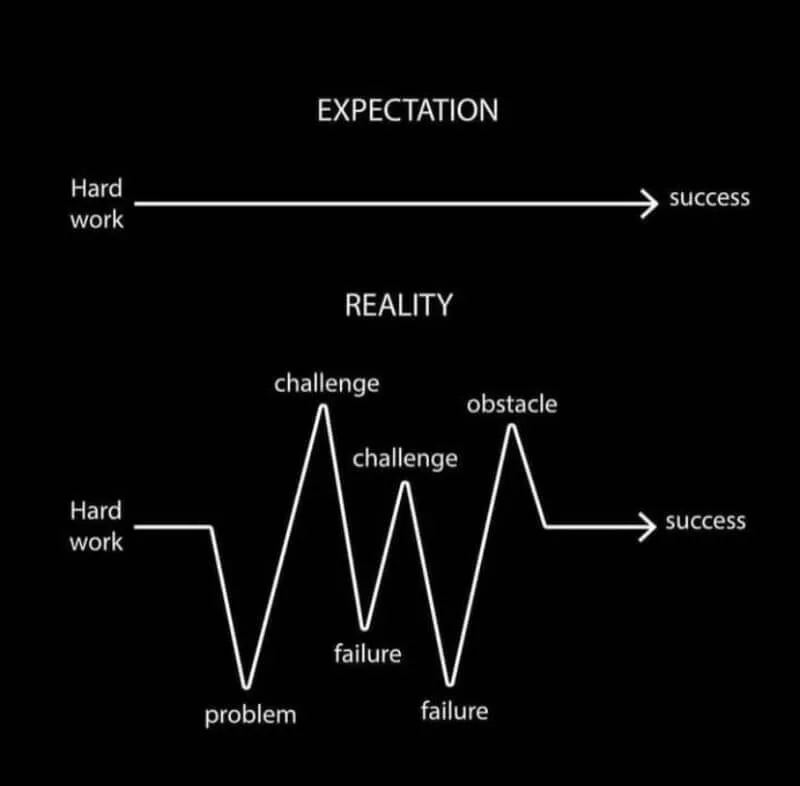
Why Simple Strategies Are Hard to Execute (And Why That's Your Advantage)
Saying it is simple. Acting on it is hard. We want silver bullets—a perfect marketing campaign, a secret template, a checklist.
But the advantage is that what is hard for you is hard for everyone. There is less competition in doing what is truly difficult.
Perseverance happens over years, even decades. There have been multiple times in my entrepreneurial career when I stopped just three feet from gold, unwilling to persevere.
I've started many ventures, side projects, and neglected my main business, always hoping for a silver bullet. But the real wins come from doubling down on what works, even if it's not sexy.
The chart that follows from the Bureau of Labor Statistics shows how survival rates of businesses decline steeply in the first five years and continue to taper off over time. The data is consistent across decades, proving that only sustained perseverance allows a business to endure while most fade away.
Neil Patel's business is a great example. It's not flashy, but it's profitable and sustainable because he stuck with it over many years. Don't believe in overnight success—overnight success takes ten years or more.
What Warren Buffett's College Friend Taught Me About Rowing in the Right Ocean
There's a famous story about Warren Buffett that really brings this home. At a college reunion, a former classmate approached Buffett and said, "Warren, I've worked hard my whole life, just like you. I became a lawyer, did alright for myself, but I look at your success and I can't quite understand it."
Buffett reflected on this, and later explained: It's not just how hard you row the boat—it's the boat you're in, and where you are in the ocean. In other words, yes, you have to work hard.
But you also have to make sure you're in the right market at the right time, and that you're positioning yourself to take advantage of the current and the wind.
Even the best boat won't get far if you don't row consistently and with focus. Luck, timing, and market fit matter—but they're nothing without execution and perseverance.
And most people don't even get to the point where luck can help them, because they quit too soon or never fully commit.
The "Overnight Success" Trap That Keeps Entrepreneurs Broke
Don't believe in the flash in the pan theory. Don't believe in overnight success.
Success is rarely instant. Even those who seem to "make it" overnight have usually been persevering for years behind the scenes.
As someone who would often have these side projects and side ventures that I would hope would be the thing that would take off because I would have "greener grass" mentality or shiny object syndrome, I can tell you firsthand how destructive this is.
I would get distracted and diluted. The main business would suffer while I focused on these other projects.
I've started a number of ventures over the last 19 years of being an entrepreneur—different projects, side projects. Even when I had my core business, which was always the thing that made money, I often neglected it the most because I wanted to believe that there was some silver bullet business model rather than just doubling down on what was making money.
How I Finally Stopped Sabotaging My Own Success (And Grew 10x in One Year)
Here's what I learned the hard way: I would execute maybe like 80% of the way there with these side projects. We would start making sales, but I would never go beyond that. I would not continuously close that 20% gap.
And let's be honest, that final 20% can represent exponential value creation and exponential growth in terms of revenue and sales for the business.
The image below highlights the opportunity of the 80/20 principle: by focusing effort on the vital 20% of tasks that truly matter, you unlock 80% of the results. Small, targeted actions can create outsized impact.
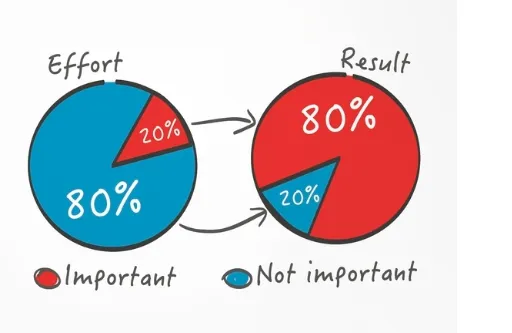
When I finally focused in 2020 to 2021, we grew 936%—almost 1,000%—where we scaled from about 10 people to 53 people on staff, and our revenue grew 10 times in monthly recurring revenue.
I put everything to the side and worked. I got up and worked with the team, and I just believed that we could get this funnel, get this offer, get this marketing, get the app out there, get it all working together, get the hiring funnel working—and it all did. (Here is another article on how we used the 80/20 principle).
If you're not achieving the level of success you want, it's almost certainly not because your plan is bad. It's because you haven't married focused execution with perseverance over time.
The difference was laser focus and relentless execution on one thing, rather than spreading my attention across multiple projects hoping for a silver bullet
Your Next Move: The 60-Second Decision That Changes Everything
Write this down. Put it in front of you: Tactical success in business is achieved through focused execution of plans married with perseverance over time.
Understand it. Accept it. Apply it. If you do, you'll turn your business into a growth juggernaut.
If you need help with the execution component, check out Growbo.com. We give you an instant marketing fulfillment team on demand—13 skill sets, including copywriting, content creation, design, development, app management, video, and more. No long-term contracts, risk-free for 14 days, and hundreds of five-star reviews.
If you got value from this article, please share it with someone who could benefit. Your feedback helps us keep creating content that helps you grow.
Keep Growing, Stay Focused,
Image Credits:
1. https://www.wealest.com/articles/success-is-nonlinear
2. https://www.linkedin.com/posts/sumit-patidar-a52737271_success-is-not-linear-activity-7211296598583066624-MNbK/
3. https://vedangvats.com/the-pareto-principle-the-80-20-rule/



